Electric Motors and Generators Fail from Contamination
Motors and generators are often mounted in a location that makes them susceptible to contamination. Over time, these contaminants cause major problems that can lead to bearing or complete motor failure. In this article, we’re going to outline four common scenarios in which contamination impacts motors and generators. We’re also going to provide solutions to keep your bearings and motors clean and free from contamination.
Breakdown of bearing lubrication or damage to the bearing surface.
Contaminants can breakdown your bearing lubrication and damage the bearing surface. This will cause a buildup of heat from friction. If the problem isn’t corrected, the added heat can lead to a catastrophic failure of your bearings and motor or generator.
Blockage of airflow or liquid cooling passages.
Motors naturally create heat which is caused by wasted energy. Motors and generators are designed with cooling fans, external blowers, vents, heat sinks, and liquid cooling systems to allow for heat to dissipate. Contaminants can clog the vents, cooling pipes, and cooling surfaces and prevent the motor from cooling properly. This added heat will eventually break down the mechanical and electrical components of your motor and can lead to motor failure.
Creating an imbalance to rotating components.
When contaminants stick to your motor rotors, fan blades, or other rotating components, they add excess weight. This weight creates an imbalance which can lead to increased vibration. The vibration caused by an out-of-balance rotating component will decrease the life of your bearings and could cause motor or bearing failure.
Deteriorating electrical insulation:
Not only will contaminants not allow your winding not to cool, the electrical insulation will breakdown over time. Contaminants will allow currents to discharge from conductors in the windings. In form wound windings, insulation tapes and varnish/resin carbonizes and breaks down. In random wound windings “pinholes” in the enamel insulation cause an electrical short when stress caused by contaminants break down the insulation. The result of insulation breakdown is lowering insulation resistance which can eventually causes an electrical short. Also on brushed motors and generators, brush dust can build up and cause shorts as well.
What are some solutions to preventing contamination in motors?
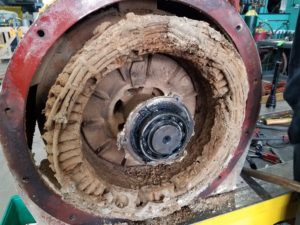
Make sure your motor/generator is selected properly for the correct application
Example: This open vented motor filled up with corn dust. The motor has to be replaced with a totally enclosed fan cooled motor.
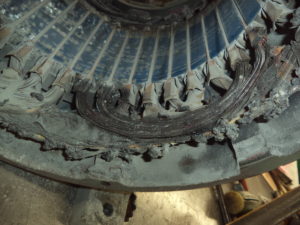
Install and maintain filters in your air or liquid cooling system to prevent blockages
Example: This printing press motor filled with paper dust because it was not filtered properly.
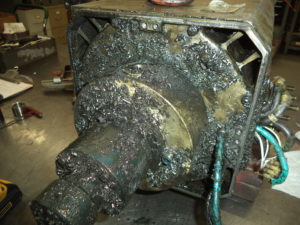
Control nearby sources of contamination
Example: This motor was splashed with coolant and metal chips from machine tools.
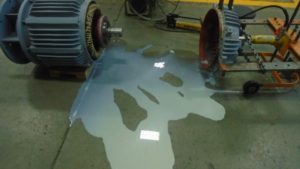
Ensure bearing, cooling systems, brakes, or other motor system components are sealed properly
Example: This motors seal wore out allowing liquid to enter the motor.
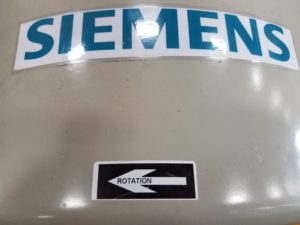
Ensure air patterns from cooling systems do not change allowing contaminates to travel in the wrong direction
Example: This motor is designed to run in one direction.
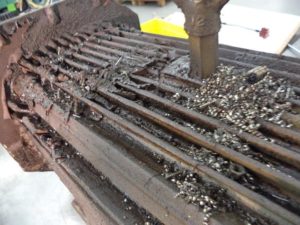
Clean cooling vents and heat sink surfaces as needed without letting contaminates to ingress the motor/generator
Example: This motors cooling surfaces have clogged with contaminates.
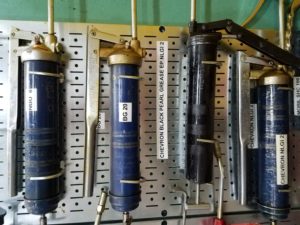
Make sure bearing lubrication tools are clean and do not let contamination in
Example: These grease guns are kept in a clean storage area for lubricating motor bearings.
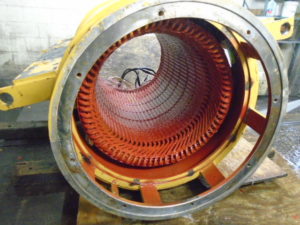
If you find your motor has been contaminated make a plan to send it in for minor reconditioning before it fails and becomes a more costly repair or replacement.
Example: A 1,600 kW generator being cleaned to remove contaminants.
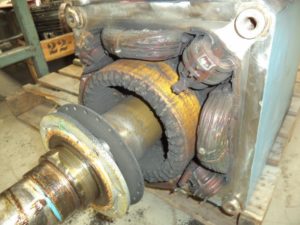
Vacuum or blow out dust in brush applications per manufacturers recommendations
Example: Carbon/Graphite dust was not blown out of the motor on this brushed DC motor causing electrical problems.
